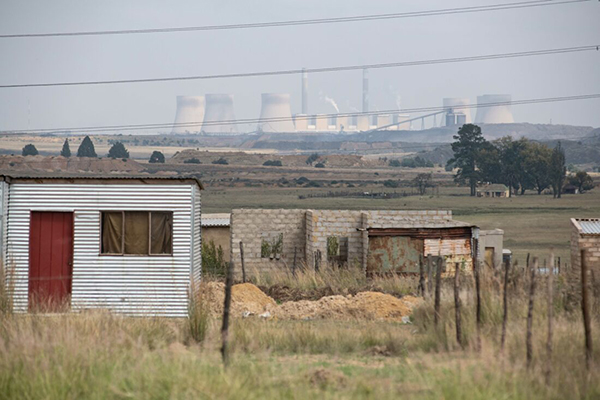Research on air pollution caused by Eskom’s ailing fleet of power stations is unequivocal: if allowed to continue, emissions from the company’s fleet of ailing power plants will cost thousands more lives.
EARTHLIFE Africa and groundWork (Friends of the Earth South Africa), represented by the Centre for Environmental Rights (CER), have made a legal submission to the government appointed expert panel on air pollution, calling on the forum to consider the horrific impacts that Eskom’s air pollution has on people’s health and lives on a daily basis when making its recommendations.
The environmental rights groups have called on the forum to ensure that Eskom is not allowed to further postpone its compliance with minimum emission standards (MES) on air quality, particularly in the Mpumalanga Highveld region – an area identified as an air pollution hotspot.
Research on the health effects of air pollution caused by emissions from Eskom’s ailing fleet of power stations shows that, if Eskom is allowed to continue as is, emissions from the company’s fleet of ailing power plants will cost thousands of lives.
“This untenable situation illustrates why we need to phase out coal as soon as possible. Not only is Eskom’s coal fleet unable to provide enough reliable electricity, but it is also killing people and making people sick every day,” says Thomas Mnguni groundWork’s coal campaigner and a Highveld resident.
Recent modelling by the Centre for Research on Energy and Clean Air (CREA) shows that:
- Under Eskom’s planned retirement schedule and emission control retrofits, emissions from the company’s power plants would be responsible for a projected 79 500 air pollution-related deaths from 2025 until end-of-life. On a cumulative basis until the end-of-life of the power plants, compliance would avoid a projected 34 400 deaths from air pollution and economic costs of R620 billion (USD 41.7 billion).
- In addition, full compliance with the MES at all plants that are scheduled to operate beyond 2030 would avoid a projected 2 300 deaths per year from air pollution and economic costs of R42 billion (USD 2.9 billion) per year.
- Other avoided health impacts would include 140 000 asthma emergency room visits, 5 900 new cases of asthma in children, 57 000 preterm births, 35.0 million days of work absence, and 50 000 years lived with disability.
- Requiring the application of best available control technology at all plants, instead of the current, weak MES, by 2030, would avoid 57 000 deaths from air pollution and economic costs of R1, 000 billion (USD 68.0 billion) compared to the Eskom plan, ERP 2022.
Abridged article reprinted from Centre of Human Rights: https://cer.org.za/news/pollution-from-eskoms-failing-coal-fleet-will-continue-to-kill-thousands
